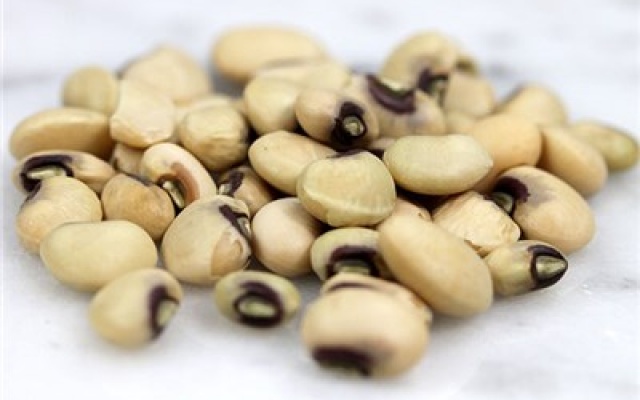By Classfmonline.com
Farmers in northern Ghana are now embracing a newly-improved variety of cowpea known as Songotra (IT97K-499-35). This is because a genetic modification for in-built resistance has been introduced into the crop, thus, farmers would no longer lose between 20 and 80 per cent of their crop yield to Maruca Vitrata (Pod borer) infestation and other pests that cause low production…
This is because a genetic modification for in-built resistance has been introduced into the crop, thus, farmers would no longer lose between 20 and 80 per cent of their crop yield to Maruca Vitrata (Pod borer) infestation and other pests that cause low production.
Presently, there are no known cowpea varieties that are resistant to the Pod borer, hence farmers in sub-Saharan Africa regularly spray five to eight times within a season to control the pests.
It is in this regard that Dr Mumuni Abdulai, an Entomologist and a Principal Investigator at the Council for Scientific and Industrial Research (CSIR) – Savannah Agricultural Research Institute (SARI) explained in an interview with Class91.3FM’s Northern regional correspondent, Mohammed Gadafi that due to the cryptic nature of feeding inside flower buds, flowers and pods, the insecticide control for Maruca Vitrata is not wholly effective.
According to him, with advances in molecular breeding, it was thought that genetic modification for in-built resistance against this pest was the most viable option. Dr Abdulai said it is on the back of this that a cowpea line, IT86D-1010 from the International Institute of Tropical Agriculture (IITA), Nigeria, was genetically modified by TJ Higgens of the Commonwealth Scientific and Industrial Research Organisation (CSIRO) in Australia.
He indicated that after several years of testing of the transformed lines in Confined Field Trials (CFTs) in Nigeria, Burkina Faso, and Ghana, through their respective research institutes: Institute of Agricultural Research (IAR) of Ahmed Bello University, Institut de l’Environnement et des Recherches Agricoles (INERA) and the Savannah Agricultural Research Institute (CSIR-SARI), one of the transformed lines proved to be the most resistant to Maruca Vitrata.
The Maruca damage in this event was reduced by 98% and yield was improved four-fold compared to the parent line used for the transformation.
According to farmers from Nyankpala, Manga and Damongo in the Northern Region who participated in the evaluation of the product under the farmers’ management conditions at the CFT of SARI, the resistance to the pest was encouraging.
They told Class91.3FM that they will be willing to grow the new variety on commercial basis as it has showed tremendous improvement in helping prevent losses.
Meanwhile, the dossier for commercial release is currently being evaluated and Dr Abdulai assured that the product will be released when the evaluation and the necessary regulatory procedures are completed.
Source: Ghana/ClassFMonline.com/91.3FM


